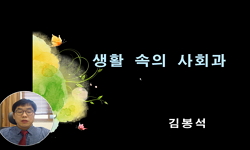목적 2022 개정 교육과정 총론(시안)에서 강조한 민주시민교육 활성화 방안을 모색하기 위해 민주시민교육의 의미, 영역, 원칙을 살펴보고 사회과에서 통합사회 교과 재구성을 통해 구체적 ...
http://chineseinput.net/에서 pinyin(병음)방식으로 중국어를 변환할 수 있습니다.
변환된 중국어를 복사하여 사용하시면 됩니다.
- 中文 을 입력하시려면 zhongwen을 입력하시고 space를누르시면됩니다.
- 北京 을 입력하시려면 beijing을 입력하시고 space를 누르시면 됩니다.

사회과에서 2022 개정교육과정 민주시민교육에 대한 소고 = A Study on Democratic Citizenship Education in the 2022 Revision Curriculum in Social Studies
한글로보기https://www.riss.kr/link?id=A108213811
- 저자
- 발행기관
- 학술지명
- 권호사항
-
발행연도
2022
-
작성언어
-
- 주제어
-
KDC
373
-
등재정보
KCI등재
-
자료형태
학술저널
-
수록면
439-460(22쪽)
- DOI식별코드
- 제공처
-
0
상세조회 -
0
다운로드
부가정보
국문 초록 (Abstract)
방법 민주시민교육의 개념과 영역, 원칙, 사회과 교육과정에서 민주시민교육의 목표와 내용요소, 사회과에서 민주시민교육의 방법을 이론적으로 탐색하였고, 고등학교 통합사회과에서 민주시민교육 적용을 위해 경기도교육청 인정교과 <더불어 사는 민주시민> 교과의 핵심 주제를 추출하여 실행연구를 수행하였다.
결과 통합사회의 핵심 주제와 요소에 따라 교육과정을 재구성하여 사회과에서 민주시민교육 수업 사례 세 가지를 제시하였다. 첫째, 논쟁문제로서 사회현안 문제, 둘째, 장소기반 학습으로서 2.28운동과 학생시민, 셋째, 평화 감수성 함양을 위한 창의적 체험과 연계한 평화, 통일 수업 사례 등을 직소모형 기반 토론학습, 프로젝트 학습의 형태로 제시하였다.
결론 2022 개정교육과정 총론(시안)에서 강조하듯 민주시민교육이 모든 교과에 반영되기 위해서는 교과, 비교과 활동을 통한 학교교육과정 설계를 위한 교사의 교육과정 설계 노력, 교사역량 연수, 민주적 실천과 가치의 동반, 조례나 법률과 같은 기준안 마련, 민주적 학교 문화의 정착과 자치 활동 등 다양한 방법이 모색될 필요가 있음을 제언하였다.
목적 2022 개정 교육과정 총론(시안)에서 강조한 민주시민교육 활성화 방안을 모색하기 위해 민주시민교육의 의미, 영역, 원칙을 살펴보고 사회과에서 통합사회 교과 재구성을 통해 구체적 실천 사례를 제시하였다.
방법 민주시민교육의 개념과 영역, 원칙, 사회과 교육과정에서 민주시민교육의 목표와 내용요소, 사회과에서 민주시민교육의 방법을 이론적으로 탐색하였고, 고등학교 통합사회과에서 민주시민교육 적용을 위해 경기도교육청 인정교과 <더불어 사는 민주시민> 교과의 핵심 주제를 추출하여 실행연구를 수행하였다.
결과 통합사회의 핵심 주제와 요소에 따라 교육과정을 재구성하여 사회과에서 민주시민교육 수업 사례 세 가지를 제시하였다. 첫째, 논쟁문제로서 사회현안 문제, 둘째, 장소기반 학습으로서 2.28운동과 학생시민, 셋째, 평화 감수성 함양을 위한 창의적 체험과 연계한 평화, 통일 수업 사례 등을 직소모형 기반 토론학습, 프로젝트 학습의 형태로 제시하였다.
결론 2022 개정교육과정 총론(시안)에서 강조하듯 민주시민교육이 모든 교과에 반영되기 위해서는 교과, 비교과 활동을 통한 학교교육과정 설계를 위한 교사의 교육과정 설계 노력, 교사역량 연수, 민주적 실천과 가치의 동반, 조례나 법률과 같은 기준안 마련, 민주적 학교 문화의 정착과 자치 활동 등 다양한 방법이 모색될 필요가 있음을 제언하였다.
다국어 초록 (Multilingual Abstract)
Methods The concept, domain, and principle of democratic citizenship education, the goals and content elements of democratic citizenship education in the social studies curriculum, and methods of democratic citizenship education in social studies were theoretically explored. For the application of democratic citizenship education in the high school integrated social studies department, a core topic was extracted from the textbook <Democratic Citizens Living Together>, a textbook approved by the Gyeonggi Provincial Office of Education, and practiced research was conducted.
Results Three examples of classes were presented by reorganizing the curriculum according to the core themes and elements of an integrated society. First, social issues as a controversial issue, second, the 2.28 movement as a place-based learning, and third, examples of peace and unification classes linked with creative experiences for fostering peace sensitivity were presented as discussion learning and project learning.
Conclusions As emphasized in the general summary of the 2022 revised curriculum, in order for democratic citizenship education to be reflected in all subjects, it is necessary for teachers to design the curriculum for school curriculum design through subjects and non-curricular activities. In addition, various methods need to be explored, such as training to strengthen teacher competency, accompany democratic practices and values, prepare standards such as ordinances and laws, and establish a democratic school culture and self-government activities.
Objectives The purpose of this study is to explore ways to revitalize democratic citizenship education emphasized in the general outline of the 2022 revised curriculum. To this end, the meaning, domain, and principle of democratic citizenship educati...
Objectives The purpose of this study is to explore ways to revitalize democratic citizenship education emphasized in the general outline of the 2022 revised curriculum. To this end, the meaning, domain, and principle of democratic citizenship education were examined, and concrete practice cases were presented through the reorganization of the integrated social curriculum in the Department of Social Studies.
Methods The concept, domain, and principle of democratic citizenship education, the goals and content elements of democratic citizenship education in the social studies curriculum, and methods of democratic citizenship education in social studies were theoretically explored. For the application of democratic citizenship education in the high school integrated social studies department, a core topic was extracted from the textbook <Democratic Citizens Living Together>, a textbook approved by the Gyeonggi Provincial Office of Education, and practiced research was conducted.
Results Three examples of classes were presented by reorganizing the curriculum according to the core themes and elements of an integrated society. First, social issues as a controversial issue, second, the 2.28 movement as a place-based learning, and third, examples of peace and unification classes linked with creative experiences for fostering peace sensitivity were presented as discussion learning and project learning.
Conclusions As emphasized in the general summary of the 2022 revised curriculum, in order for democratic citizenship education to be reflected in all subjects, it is necessary for teachers to design the curriculum for school curriculum design through subjects and non-curricular activities. In addition, various methods need to be explored, such as training to strengthen teacher competency, accompany democratic practices and values, prepare standards such as ordinances and laws, and establish a democratic school culture and self-government activities.
목차 (Table of Contents)
- Ⅰ. 서론
- Ⅱ. 민주시민교육의 개념과 영역
- Ⅲ. 사회과에서 민주시민교육의 의미와 방법
- Ⅳ. 「통합사회」 교과목에서 민주시민교육의 실제
- Ⅴ. 결론 : 사회과에서 민주시민교육을 위한 제언
- Ⅰ. 서론
- Ⅱ. 민주시민교육의 개념과 영역
- Ⅲ. 사회과에서 민주시민교육의 의미와 방법
- Ⅳ. 「통합사회」 교과목에서 민주시민교육의 실제
- Ⅴ. 결론 : 사회과에서 민주시민교육을 위한 제언
- 참고문헌
동일학술지(권/호) 다른 논문
-
남자 신입 대학생의 인유두종 바이러스 예방접종 의도 영향요인
- 학습자중심교과교육학회
- 장수현(Su Hyun Jang)
- 2022
- KCI등재
-
대학생의 진로결정자기효능감이 역기능적 진로관여사고와 진로스트레스에 미치는 효과
- 학습자중심교과교육학회
- 이순희(Soon Hee Lee)
- 2022
- KCI등재
-
어린이집 원장의 아동학대 신고의무자 역할수행 경험 탐색
- 학습자중심교과교육학회
- 이정은(Jung Eun Lee)
- 2022
- KCI등재
-
인공지능 시대의 직업담론에 따른 사회과교육의 실천전략 탐색
- 학습자중심교과교육학회
- 박지수(Jisu Park)
- 2022
- KCI등재




 스콜라
스콜라






